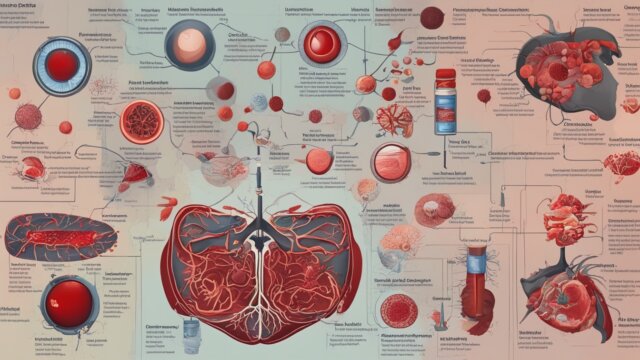FTC disclaimer: This post may contains affiliate links and we will be compensated if you click on a link and make a purchase.
Did you know most people have felt nausea and vomiting at some time? Vomiting is when you throw up what’s in your stomach. It can happen for many reasons, like food poisoning or being pregnant. Knowing why, what it feels like, and how to stop it is key to feeling better.
Vomiting is a way the body gets rid of bad stuff. But it can also mean there’s something wrong inside you. You might feel sick, have stomach pain, or get a fever. If you throw up a lot, you could get dehydrated. You should see a doctor if it’s bad or if you have other symptoms.
Key Takeaways
- Vomiting can happen for many reasons, from short-term illnesses to ongoing health issues.
- If you throw up a lot, you could get dehydrated and face serious health problems.
- See a doctor if vomiting is bad, doesn’t stop, or if you have other symptoms.
- There are ways to treat vomiting, like taking certain medicines or changing your habits.
- To avoid vomiting, try to know what makes you sick and eat smaller meals. Ginger can also help.
What is Vomiting?
Definition and Overview
Vomiting, also known as throwing up or being sick, is when the stomach and upper digestive system push out their contents through the mouth. It’s a way the body gets rid of harmful substances. Most folks will throw up at some time.
Vomiting makes the stomach muscles contract strongly. Regurgitation doesn’t use these muscles and is different. Sometimes, vomiting can be so strong it shoots stomach contents far away.
Difference Between Vomiting and Regurgitation
Vomiting and regurgitation both push stomach contents out. But they’re not the same. Vomiting is active, using stomach and muscle power to throw out food. Regurgitation is passive, letting food come back up without muscle effort.
Vomiting | Regurgitation |
|---|---|
Forceful ejection of stomach contents | Passive return of stomach contents |
Involves strong abdominal muscle contractions | No abdominal muscle contractions |
Usually accompanied by nausea | May or may not be accompanied by nausea |
Can be projectile in nature | Contents typically come up gently |
“Vomiting is a reflex that helps the body get rid of substances that may be harmful.”
Causes of Vomiting
Acute Causes
Acute vomiting, which lasts less than 2 days, can be caused by many things. For example, over 48 million Americans get sick each year from eating bad food, leading to vomiting. The norovirus is a big cause of stomach problems, with over 19 million cases a year.
Motion sickness can also cause nausea and vomiting, from the body’s senses not matching up. Stress can make some people vomit, as part of their body’s automatic response. If you vomit blood, see a doctor right away, as it could mean bleeding inside your stomach.
Bile vomiting might mean you have issues like drinking too much alcohol, food poisoning, or blockages in your intestines, so you should see a doctor.
Chronic Causes
Chronic or recurring vomiting can come from many things. About half of pregnant women get morning sickness, starting early in pregnancy. By around 14 weeks, many women feel better from the nausea and vomiting. Acid reflux can also cause vomiting, from the muscle at the top of the stomach not working right.
Migraines can make some people feel nauseous and vomit, from things like hormonal changes or stress. If you can’t stop vomiting or it doesn’t get better in a day or two, you should see a doctor.
Chronic stomach problems like food intolerances, IBS, and Crohn’s disease can cause nausea and vomiting. Drinking too much alcohol can hurt your stomach lining, leading to nausea and vomiting. Eating disorders like bulimia and anorexia can also make people vomit, from trying to control their weight.
Sometimes, vomiting can be a sign of serious issues like meningitis, appendicitis, a brain tumor, or migraines. Most vomiting goes away in 6 to 24 hours after it starts. If you’re very dehydrated, keep vomiting, or have other bad symptoms, you need emergency help.
Symptoms Associated with Vomiting
Vomiting brings many unpleasant symptoms that can really affect someone’s health. These symptoms include nausea, mouthwatering, stomach pain, diarrhea, fever, and feeling very tired. Retching is like vomiting but doesn’t bring up stomach contents. If vomiting goes on, it can cause dehydration, which is dangerous if you lose more fluids than you drink.
Acute vomiting, from a virus for example, usually doesn’t last more than 2 days. But chronic vomiting could mean a serious issue, like a stomach problem, brain issue, or metabolic disorder. Common causes of chronic vomiting are food allergies, acid reflux, and disorders that make you feel sick.
Symptom | Description |
|---|---|
Nausea | An unpleasant sensation of the need to vomit, often accompanied by a feeling of discomfort in the stomach. |
Mouthwatering | Excessive saliva production, which can be a precursor to vomiting. |
Abdominal Pain | Discomfort or pain in the abdominal region, which can be a contributing factor to vomiting. |
Diarrhea | Frequent and loose bowel movements, often accompanying vomiting episodes. |
Fever | An abnormally high body temperature, which can be a sign of an underlying infection or illness causing vomiting. |
Fatigue | Feelings of tiredness and exhaustion, common in individuals experiencing prolonged vomiting episodes. |
The symptoms of vomiting can change a lot based on the cause. If vomiting comes with scary symptoms like chest pain, trouble breathing, or severe stomach pain, see a doctor.

In some cases, vomiting could mean a serious condition, like a brain disorder, metabolic problem, or some cancers. If vomiting lasts over two days, you lose weight without a reason, or it’s always happening, see a doctor for help.
Vomiting in Children
Children often throw up more than adults. Viral infections, food poisoning, and motion sickness are common reasons. Sometimes, a blocked intestine in babies can also cause ongoing vomiting. Usually, vomiting in kids stops after 1 to 2 days. But, parents should know when to see a doctor.
If a baby vomits for over 12 hours, call the doctor. Kids under 2 need a doctor if they vomit for more than 24 hours. Kids 2 and older should see a doctor if they vomit for over 48 hours.
Babies not wetting their diapers in eight hours or showing dehydration signs need a doctor right away. Kids with vomiting and diarrhea should also get medical help.
Abdominal pain, fever, or not gaining weight can mean a child is vomiting for a reason. Signs of dehydration in kids include a dry mouth or skin. Babies with projectile vomiting or kids with bad stomach pain need emergency care. Seeing a doctor is also needed if vomiting has blood, green stuff, or black poop.

Knowing why kids throw up and when to get help is key for parents. Keeping kids hydrated and getting advice from doctors can help fix vomiting in kids.
Vomiting in Adults
Vomiting is common in adults and can have many causes. It’s usually short-lived, lasting 1 or 2 days. But sometimes, it can signal serious health problems.
Chronic Stomach Conditions
Conditions like food intolerances, IBS, and Crohn’s disease can cause nausea and vomiting. These can lead to ongoing vomiting that needs medical help.
Lifestyle Choices and Eating Disorders
Some lifestyle choices can make adults vomit. Drinking too much alcohol can harm the gut and cause nausea. Eating disorders like bulimia and anorexia also involve vomiting, harming health.
Nausea and vomiting can mean many things are wrong. If you vomit for over 24 hours or have severe pain, see a doctor.

Self-care can help with vomiting, like staying hydrated and eating bland foods. But if it doesn’t stop, you might need a doctor’s help, including medicines or fluids.
To prevent vomiting, avoid your triggers and eat small, frequent meals. Getting help for chronic conditions can also help manage vomiting.
Serious Conditions Causing Vomiting
Vomiting is usually not a big deal by itself. But sometimes, it can mean something serious is going on that needs quick medical help. Things like encephalitis, meningitis, certain cancers, heart attacks, concussions, brain tumors, or bowel blockages can cause it.
Encephalitis makes the brain inflamed and can lead to vomiting, fever, headaches, and feeling confused. Meningitis is an infection that affects the brain and spinal cord membranes. It can cause vomiting, a stiff neck, and being sensitive to light.
Some cancers, like brain tumors or cancers spreading to the brain, can make you vomit. Heart attacks and concussions might also cause vomiting. A brain tumor can put pressure on the brain, leading to ongoing nausea and vomiting.
A bowel obstruction is a blockage in the intestines that can cause severe vomiting. This is a serious condition that needs quick medical help to avoid serious problems.
If you keep vomiting or it’s very bad, you should see a doctor right away. They can check for serious issues and give you the right treatment. Don’t wait to ask for help if you’re worried about your vomiting.

When to Seek Medical Attention
Vomiting can be a worrying sign. It’s key to know when to get medical help. Seek urgent medical care if you are vomiting blood, bile, or fecal matter, have severe or constant abdominal pain, a stiff neck and fever, or severe headaches. These signs might mean a serious issue that needs quick action.
If you keep vomiting for over 48 hours, are weak to illness, or losing weight without reason, see a doctor. Long-term vomiting can cause dehydration and other issues that need a doctor’s help.
- Vomiting that stops you from keeping fluids or food down for more than 12 hours means you should call your doctor.
- Nausea and vomiting with bad pain, headaches, or a stiff neck need quick action.
- Vomiting blood or seeing dark, coffee-like stuff in your vomit means you should see a doctor right away.
- Signs of dehydration like crying without tears, a dry mouth, and not peeing much show how bad it is and you need a doctor.
If you have any of these worrying signs, get medical help fast. Your doctor can find out why you’re vomiting and give you the right treatment. This will help you feel better and avoid serious problems.
Diagnosis of Vomiting
If you’re vomiting, the way doctors figure out what’s wrong can change based on how often you’re throwing up. For a short, one-time bout of vomiting, finding the cause might be hard. But if you keep vomiting, doctors will look deeper to find the cause.
Doctors start by taking a detailed medical history and doing a physical check-up. They want to know about your vomiting, any other symptoms you have, and your overall health. For kids, they also look at the family and medical history for things like migraines, irritable bowel syndrome, and mental health issues.
Your doctor might order tests like blood and urine tests, or imaging scans if needed. These tests help find things like infections, inflammation, or other problems that could be making you vomit.
Sometimes, you might see a specialist like a gastroenterologist or neurologist. This is key for issues related to the digestive or nervous system. They have more knowledge and tools to help figure out and treat the problem.
The way doctors diagnose can change based on the situation and what they think is causing the vomiting. Your doctor will work with you to find the best way to figure out why you’re vomiting and how to treat it.
Treatment and Management Options
If you’re vomiting from things like food poisoning, you can try some things at home. Drink clear fluids, eat soft foods, and skip the booze and caffeine. Also, take anti-nausea pills or try ginger. And don’t forget to rest a lot.
Self-Care and Home Remedies
For really bad vomiting, you might need stronger medicine. If it’s really serious, you might need surgery. It’s key to keep drinking water and eating well when you’re vomiting a lot.
Medications and Medical Care
Relaxing can help with nausea and vomiting. Things like meditation and deep breathing work well. Adding biofeedback to these can also help.
Guided imagery can also ease nausea by letting you focus on something else. Acupuncture might help too, even if it’s not proven for sure. Music therapy can also lessen nausea and vomiting.
A systematic review showed aromatherapy helps cancer patients with nausea and vomiting. Acupressure might help some people, but it’s not as strong as acupuncture. Peppermint oil aromatherapy can ease nausea from cancer treatments. Music therapy is also a good addition to standard treatments.
Ginger might help with nausea and vomiting, but we need more research on it. Hypnosis can help control nausea too. Music therapy can lessen nausea and vomiting in cancer patients.
Lost 2 or more pounds in a few days? That could mean you’re losing too much water and might be dehydrated from vomiting.
Conclusion
Vomiting is a common symptom with many possible causes, both short-term and long-term. It’s usually not a big deal by itself but can become serious if it doesn’t stop or is very bad. It’s important to see a doctor quickly, especially if it’s bad, and follow their advice to manage it well.
Knowing what can make you vomit, like stomach problems, infections, medicines, or stress, helps you take steps to stop it. Keeping clean, drinking plenty of water, and avoiding things that make you vomit are also important.
Being aware of what causes vomiting, its signs, and how to treat it lets you work with your doctor well. Quick doctor visits and following their advice are key to getting better fast and avoiding serious problems from ongoing or bad vomiting.
FAQ
What is vomiting?
Vomiting is when you throw up the stuff in your stomach through your mouth. It’s a way your body gets rid of bad stuff.
What is the difference between vomiting and regurgitation?
Vomiting is when your stomach muscles contract hard. Regurgitation doesn’t need muscle effort. Vomiting can throw stuff far away.
What are the common causes of acute vomiting?
Acute vomiting lasts less than 2 days. It can come from food poisoning, motion sickness, or drinking too much alcohol. Other causes include surgery, COVID-19, and some health issues.
What are the common causes of chronic or recurring vomiting?
Chronic vomiting can happen from cancer treatments, morning sickness, or migraines. It can also be from food allergies or stomach problems. Other causes include mental health issues and some infections.
What other symptoms can accompany vomiting?
Vomiting can make you feel nauseous, have mouthwatering, and stomach pain. You might also get diarrhea, fever, and feel very tired. Retching is like vomiting but doesn’t bring up stomach contents. Long-term vomiting can make you dehydrated, which is dangerous.
Are children more prone to vomiting than adults?
Yes, kids get vomiting more often than adults. It can be from viruses, food poisoning, or motion sickness. Sometimes, it’s from coughing, high fever, or eating too much.
What chronic stomach conditions can lead to vomiting in adults?
Adults with stomach issues like food intolerances or Crohn’s disease may vomit. They might also have diarrhea, constipation, or stomach pain.
Can lifestyle choices and eating disorders also cause vomiting?
Yes, eating too much alcohol or having eating disorders can cause vomiting. These disorders involve vomiting or not eating enough.
What serious conditions can cause vomiting?
Vomiting can sometimes mean you have a serious illness like a brain infection or cancer. It can also mean you’re having a heart attack or a brain tumor. These need quick medical help.
When should you seek medical attention for vomiting?
Go to the hospital if you throw up blood, bile, or poop. If you have bad stomach pain, a stiff neck, or a high fever. See a doctor if you’re vomiting a lot, if you’re very sick, or if you’re losing weight for no reason.
How is the cause of vomiting diagnosed?
Doctors will look at your health history and check you over if you keep vomiting. They might do tests like blood work or scans. You might see specialists like gastroenterologists or neurologists.
What are the treatment options for vomiting?
For mild vomiting, drink clear fluids and eat soft foods. Avoid alcohol and caffeine. You can take over-the-counter meds or ginger to help. Rest a lot. For worse cases, you might need stronger meds. Sometimes, surgery is needed. It’s important to stay hydrated and eat well when you’re vomiting a lot.








